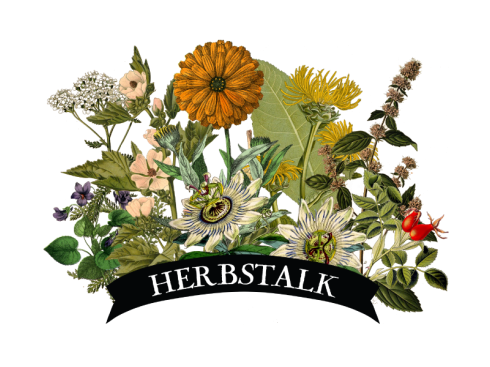|
Submitted by Jennie Oceane Edgar, Wildflower Revolution In light of Herbstalk’s original purpose, to spread awareness about the use of herbs in everyday life, I am inspired to write about the use of herbs as a way of life. In my experience, many people come to herbalism because of discontentment with the conventional health care system. However, people often begin and end their herbal tenure with a product that offers them relief only for their isolated ailment. Other times, people continue a life-long relationship with “medicinal” plants but only use herbs when they are sick, or during their pregnancy, or as they recover from an emotional trauma. In short, many people use herbs at the onset of an illness and discontinue when symptoms subside. While it is great to know the herbs that will lessen the severity of an illness, I want to bring to light the wonderful power of herbs that appear to do absolutely nothing. The absence of an immediate effect is uncommon in Western medicine, which does not normally value preventative medicine. It is easy to be skeptical of “medicinal plants” that don’t immediately induce change. But that is one of the wonderful characteristics of herbalism: often, the effects are invisible because the benefits are preventative. Of course, just as there are countless testimonies of herbs “curing” or “alleviating” something, there are also many people who have attested that herbs did not benefit them in any way at all. This is not a narrative dissimilar from conventional medicine, except when we begin to think about medicine as nourishment. In an age of processed foods, newfound gluten sensitivities, and skepticism over the safety of GMOs, from where shall we receive our nourishment? Perhaps there is little that is neither more wholesome nor more abundant than the nourishing herbs – the weeds – that grow all around us. Of course, not all herbs are gently transformative – there are powerful and potent plants that will purge your “toxins” and “cleanse” your body, but is that true nourishment? Instead, we might ask: what are the conditions of a society that leads us to see ourselves as broken and dirty, needing to be magically fixed? How can we fortify ourselves, individually and collectively, against this dominant cultural narrative so that we can be sweet and kind to our sacred bodies? Using the nourishing herbs as support is a start. These herbs can be purchased from local sources that ethically wildcraft or organically grow the plants. Or, better yet, you can learn to harvest them yourself – gather Nettle leaves in the spring, pop the flower buds off the Red Clover in the summer, pull the Dandelion roots from your backyard in the fall – and make a nourishing tea that is so packed full of vitamins and minerals, it is akin to food. Yes, food is “medicine” because food should always be nourishing. Nettles, Urtica dioica When we begin to think about medicine and healing as nourishment, we completely change our relationship to illness and dis-ease, as well as to our contemporary standards of health care in America. Nourishment isn’t monumental or climactic, because it is slow and subtle; but in the 21st century, nourishing ourselves can indeed be revolutionary. In this way, anyone who uses herbs is practicing herbalism. As you learn about plants and their nourishing properties and spiritual potencies, herbalism becomes more than an occasional past time, more than a passion or a business. Once one begins to consider nourishment as an everyday commitment, a joyful task that is counter to the dominant narrative of “health” and “medicine” and “food” in general, herbalism becomes something more than the use of herbs… Herbalism becomes a state of mind, a way of life. So yes, it’s certainly ok to only think of using herbs when you’re coming down with a cold, because we’re busy and there’s only so much time in the day. But please remember that herbalism is simple because nourishment is simple. We find it all around us: food is medicine, love is medicine, and medicine is the vital green energy growing between cracks in the pavement or in forgotten corners of the field… When we integrate herbs into our everyday life, we can be assured we’re doing more good for ourselves, our families, and our communities than we may know. In our everyday lives, nourishment abounds.  Jennie Oceane Edgar is the founder of Wildflower Revolution, a spiritual & educational resource for those who seek alternative modes of thinking, healing, and living in contemporary American society. Wildflower Revolution also supports female reproductive and sexual well-being by offering classes, services, and products for women of all manifestations. Jennie is a doula, aspiring herbalist, and Masters candidate at Harvard Divinity School where she studies earth-centered religions and practices. Comments are closed.
|
Archives
November 2023
Categories
All
|

 RSS Feed
RSS Feed